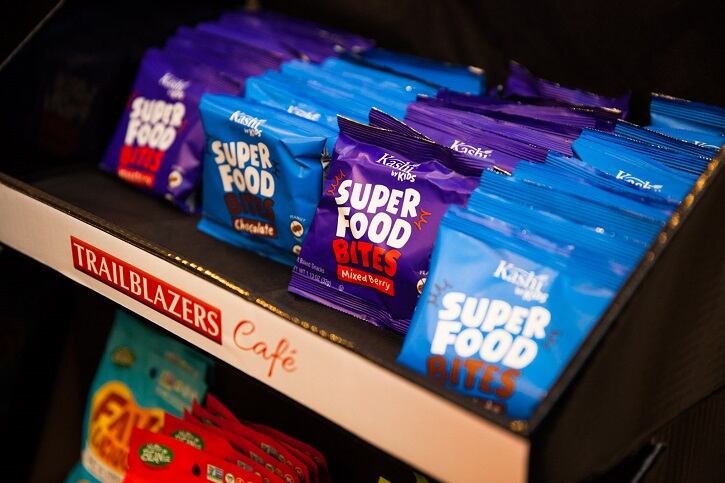A new report by Packaged Facts , which surveyed 23,600 US adults, showed that interest in and consumption of organic and natural foods are highly dependent on age demographics and have less to do with income. In general, usage of organic drops off at the '55 and over' age bracket, despite this generation being more financially stable than younger generations.
While it may not come as a huge surprise that adult consumers in younger generations (under the age of 40) tend to be frequent purchasers of organic and natural foods, this behavior is skewing younger and younger, according to Packaged Facts.
In the category of organic meat for instance, core consumers tend to be younger adults (older millennials or younger Gen X) with children in the household and have higher incomes.
However, despite having relatively lower incomes, Gen Z and millennials show slightly more frequent purchasing of organic meats, being more likely to perceive organic meats or meats with premium labels—such as "naturally raised", grass fed/pasture raised, antibiotic/steroid/hormone free, and no preservatives—as tasting better and being healthier than conventional meats.
As such, Gen Z falls below the overall average of consumption of conventional animal proteins. Packaged Facts found that fall below the average consumption for beef, seafood, and pork compared to older generations.
The snacking and frozen food generations
Gen Z and millennials are also disproportionately represented among purchasers of organic packaged foods, in part because they tend to prioritize better-for-you snacks, with millennials being the most likely purchasers of organic packaged foods, according to Packaged Facts research.
Gen Z is big on snacking with 40.6% agreeing that they eat several small meals throughout the day. They are also the generation most likely to snack between meals. According to Packaged Facts, 72.5% agreed that they 'often snack between meals' compared to 68.8% of all adults between the ages of 18-39.
"The hectic, more improvised lifestyles of modern young adults make snacks and convenient food options more popular than ever. As a result, foodservice and food retail alike are innovating to keep pace. But unlike their 2009 counterparts, these young adults in 2019 are more prone to only snack on healthy foods (at 28% vs. 24%)," noted Packaged Facts.
The youth paradox?

Adults under age 40 are 20% more likely to be willing to pay more for products to help keep them looking young. And despite the paradox, this consumer behavior is even more pronounced among Gen Z adults (age 18-24) who are 27% more likely to pay more for products that will keep them looking young, regardless of income.
"While certain demographics in the age 40+ cohort skew even more sharply than Gen Zers and Millennials in seeking out new health food products in keeping with a turn to functional foods among segments of middle age and older adults, new health food products have a broader draw among the younger adults," said Packaged Facts.
Gen Z and millennials over index in their purchases of packaged fruit snacks
Gen Zers and millennials are somewhat below average in consumption of crackers, and also of pretzels. In contrast, Gen Z and millennials over index in their purchases of packaged fruit snacks, standing at 37% and 74% above the overall average.
With a taste for convenience, Gen Z and millennials are above average in use of breakfast/cereal granola bars or frozen breakfast entrees/sandwiches. In addition, Gen Zers are above average users of breakfast baked goods including bagels, frozen waffles/pancakes/French toast, and breakfast pastries.
Also fans of the frozen food case, Gen Z and millennials are the bigger consumers of frozen hot snacks (37% and 24% above average use) and frozen pizza.
Flavor seekers and culinary enthusiasts
Having grown up during the age of the internet and social media, which fostered greater exposure to a wider variety of cultures and cuisines, younger consumers tend to be budding foodies as well.
Consumers aged 18-24 prefer food cooked with ‘lots of spices’ than the larger cohort of adults (aged 18-39) and ‘prefer food that is presented as an art form.’
Gen Z has also become more interested in cooking with 50% of those surveyed agreeing that they “really enjoy cooking” in 2019 compared to 45.1% in 2009.
"In addition, compared to their counterparts a decade ago, modern day 18- to 24-year-olds of Gen Z are somewhat more likely to look for organic or natural foods when they go food shopping (27% vs. 22%) and agree that they prefer foods without artificial additives (38% vs. 32%), and tend to be vegetarians," Packaged Facts added.




